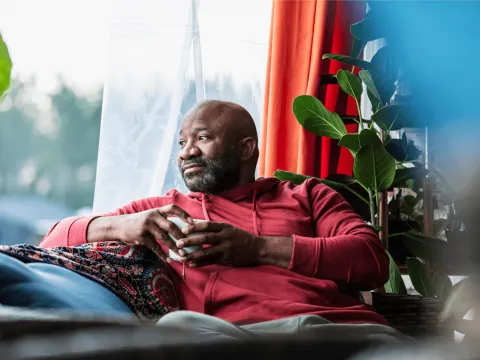- AdventHealth Whole Health Institute

Whole-person integrative medicine focused on healing you in mind, body and spirit. It's more than fixing what’s wrong. It’s about celebrating what’s right and making sure you’re on the path to a healthier, stronger you.
April 25th is celebrated as National DNA Day, commemorating the publishing of papers on the structure of the DNA by James Watson, Francis Crick, Maurice Wilkins and Rosalind Franklin in 1953, marking a new era in medicine. In April of 2003, the Human Genome Project (one of the largest international collaborations in history) was completed, identifying, mapping and sequencing all the human genes.
The findings were more than astounding. For starters, humans turned out to have only around 25,000 genes - not even twice the number of genes of a fruit fly and far fewer than many other animals or plants (with grapes having 30,000 genes and rice around 50,000 genes).
If the fact that we have less genes than our dinner wasn’t disappointing enough, we turned out to be genetically only 4% different from a chimpanzee!
We were hoping that we would find single genes responsible for single diseases, which would allow us to cure them by repairing (editing) such genes. We have indeed developed gene editing technology which may become a game changer for some devastating diseases driven by single genes, like cystic fibrosis, muscular dystrophy or hemophilia. The vast majority of diseases, however, are a result of interaction between many genes and many tiny gene variants (so called SNPs – single nucleotide polymorphisms), with our lifestyles and our environment. In other words, our environment and our lifestyle (including our food choices) influence our genes – turning them on and off or at least moving the dimmer switch up or down.
We may have only 25,000 genes but we have over 3 million of their variants – SNPs - making us unique in terms of our needs, weaknesses and strengths. There are SNPs that make their carriers more vulnerable to the lack of vitamin B12, or folate, or vitamin D. Other SNPs make it hard for some of us to process caffeine (causing trouble sleeping, high blood pressure and maybe even increasing their risk of a heart attack), while others get coffee in and out of their system in a jiffy. Some of us may not be suited to become vegetarians, while others are more likely to get in trouble if they eat animal fat. We are affected differently by alcohol, medications and even supplements (like fish oils). Some of us are superstars in handling toxins, others may get sick from a few applications of pesticides. Some of us are wired for endurance while others are wired for sprints, or weight-lifting.
The exciting part is, that we can often “nudge” desirable genes with specific food compounds like sulforaphane from broccoli, curcumin from turmeric or lycopene from tomatoes. Since these compounds affect gene expression (the “light switch”) – promoting production of anti-oxidants, enhancing detoxification or dampening inflammation, we call them “bio-active”. The science that studies how food affects our genes – nutrigenomics – is rapidly evolving: we gain a better understanding of the mechanisms behind the success of healthy diets, such as the Mediterranean diet, almost every day. Having this knowledge may allow us to not only provide more personalized nutritional advice, and lower risk of diseases such as cancer, diabetes, heart disease or Alzheimer’s, but also motivate us to eat what our genes need for optimal health and longevity.
For example, the APOE4 gene, known to be associated with Alzheimer’s dementia, is quite common in West Africa – while dementia is not. However, when people with APOE4 move to the United States and embrace our SAD (Standard American Diet) full of excessive calories from sugar, processed foods and animal fat, and lead a sedentary lifestyle popping medications (for their, often, self-inflicted maladies), their risk of Alzheimer’s hikes up. The APOE4 gene (and other genes promoting inflammation) gets unleashed.
So why don’t we, instead of becoming victims of our genes, learn how to control the light switch and create our own healthy destiny?
One challenge, which needs to be tackled collectively, is the environmental pollution, and work-life balance. It is hard to be healthy when breathing car exhaust and eating pesticide residues with our cheerios, or sacrifice sleep, exercise and relationships to work even more hours, under stress.
Science is clear about that – we won’t be more productive the longer we work, and we will burden our health care with diseases resulting from stress and lack of self-care.
Happiness, nature, exercise, rest, sleep, hobbies as well as spending time with family and friends (and yes, definitely with our dogs as well) turn on the good genes.
With the help of the Whole Health Institute, you can learn what your DNA reveals about your health. As part of our Culinary Genomics Program, you'll be able to understand how your genes affect your body.
Happy DNA Day!





